France says Macron, Putin agree to work for ceasefire in eastern Ukraine
French President Emmanuel Macron and his Russian counterpart Vladimir Putin have agreed to work for a ceasefire in eastern Ukraine, Macron's office says, amid growing tensions between Moscow and the US-led NATO over Ukraine.
The agreement between Macron and Putin on a truce in eastern Ukraine was reached a phone conversation that lasted 105 minutes on Sunday, the Elysee said.
The two leaders agreed on “the need to favor a diplomatic solution to the ongoing crisis and to do everything to achieve one,” the Elysee said, adding that French Foreign Minister Jean-Yves Le Drian and his Russian counterpart, Sergei Lavrov, would also meet “in the coming days.” According to Russian agencies, the two foreign ministers would speak on Monday.
In 2014, Ukraine’s two regions of Donetsk and Luhansk – collectively known as the Donbass – were turned into self-proclaimed republics by ethnic Russians, leading to a bloody conflict between the government forces and the armed separatists.
Ukraine, as well as the European Union (EU) and the United States, claims that Russia has a hand in the conflict that erupted in the Donbass and has so far killed more than 14,000 people. Moscow denies the allegation.
The armed conflict began when a wave of protests in Ukraine overthrew a democratically-elected pro-Russia government and replaced it with a pro-West administration. The majority in those areas refused to endorse the new administration.
Earlier this week, ethnic Russians and Kiev traded accusations that each had fired across the ceasefire line.
The pro-Russian fighters have accused the West-backed Ukrainian government forces of launching an artillery barrage on a frontline village, with Moscow raising deep concern over the latest flare-up.
More than 20 residences were damaged by shelling attacks around the village of Stanytsia Luganska on Thursday.
Putin and Macron also stressed on Sunday that they would work “intensely” to allow the Trilateral Contact Group, which includes Ukraine, Russia and the Organization for Security and Co-operation in Europe (OSCE), to meet “in the next few hours with the aim of getting all interested parties to commit to a ceasefire at the contact line” in Donbass.
“Intense diplomatic work will take place in the coming days,” Macron's office added. Several consultations are to take place in Paris.
In September 2014 and after extensive talks, Ukraine, Russia and the Organization for Security and Co-operation in Europe (OSCE) signed an agreement in Minsk, the capital of Belarus, to end the Donbass regional conflict and establish a lasting ceasefire. France and Germany, as part of the Normandy Format, mediated the agreement.
However, it failed to end the conflict and was thus followed with a new package of measures, called Minsk II, which was inked in February 2015. This second agreement also failed to stop the fighting, but the Normandy Format parties agreed that it remains the basis for any future resolution to the conflict in eastern Ukraine.
The Russian and French presidents also agreed on Sunday that talks between Russia, Ukraine, France and Germany should resume in an attempt to implement the Minsk protocol.
The Elysee said Macron, German Chancellor Olaf Scholz and US President Joe Biden would now consult on the Ukraine crisis “within hours.”
Russia and NATO have been at odds over Ukraine for the past several months. Western countries accuse Russia of preparing for an invasion of Ukraine by massing 100,000 troops and armaments near the border with that country. Rejecting the allegation, Moscow says the troop build-up is defensive as NATO has increased its activity near Russian borders.
Back in December, Moscow asked NATO not to allow Ukraine and other former Soviet countries to join the Western military alliance, and also to stop its military deployments to Ukraine and to roll back it forces from eastern Europe, demanding legally binding guarantees. The West, however, has flatly rejected the demands, emphasizing that NATO membership will remain open to Ukraine.
Putin has already warned that the US is deliberately designing a scenario to lure Russia into a war over Ukraine, as the Kremlin has repeatedly reiterated that the expansion of the NATO military infrastructure in Ukraine constitutes a red line for Moscow and that any future expansion must exclude Ukraine and other former Soviet countries.
According to Macron’s office, Putin on Sunday told his French counterpart that he intends to pull Russian troops out of Belarus as soon as ongoing military exercises there are over.
In a major step to de-escalate, Moscow announced last week that some of the troops deployed in areas bordering Ukraine would return to their bases.
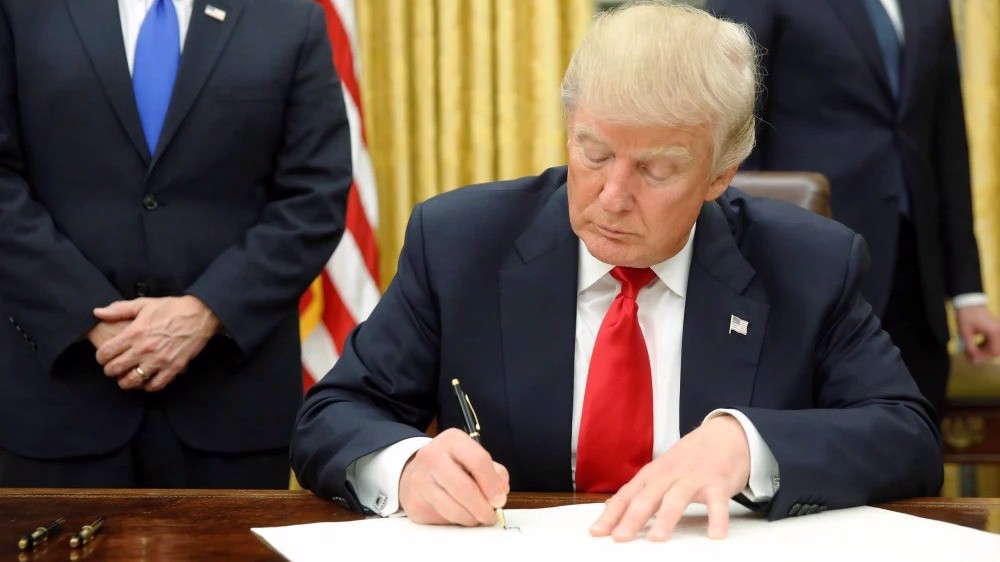
Trump extends Russia sanctions ahead of meeting with Zelensky
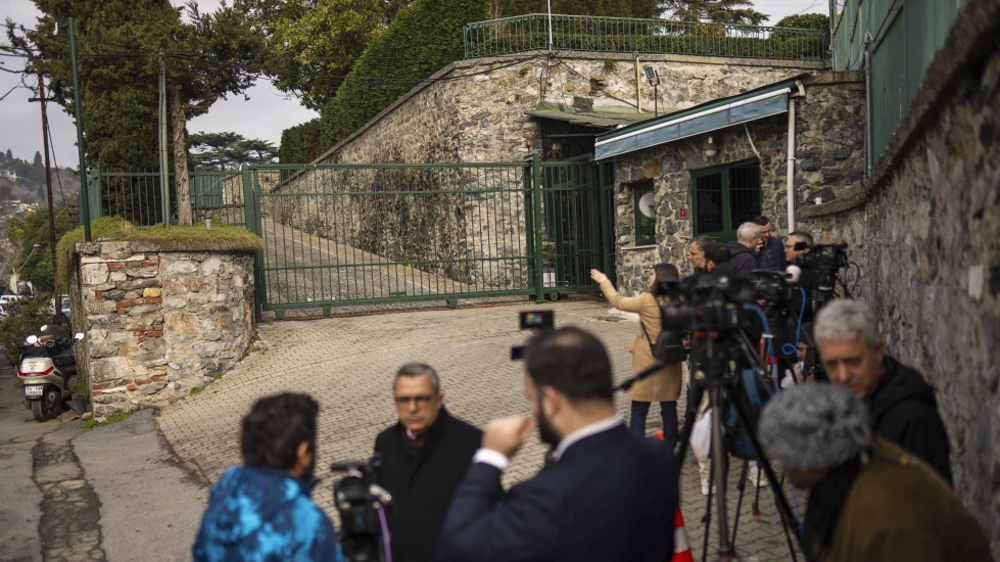
Russia, US diplomats to meet in Istanbul to discuss restoration of embassies: Lavrov
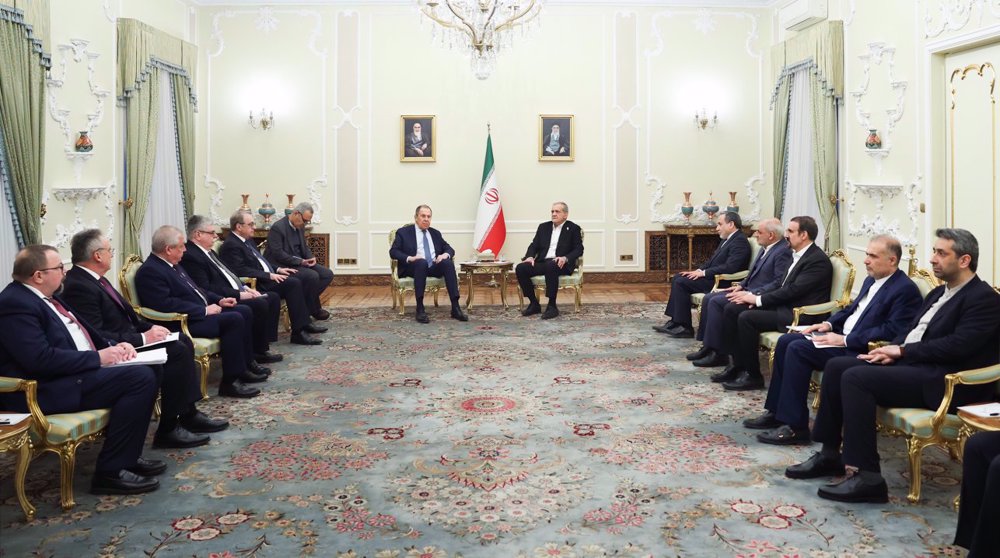
Iran’s president vows to accelerate cooperation with Russia
UN rights official: Israeli occupation of Golan Heights destabilizes security
Hunger, disease loom for Rohingya refugees in Bangladesh amid Trump's aid cuts: UN
Hamas rejects Israel’s proposal to extend phase one of Gaza ceasefire
Explainer: How can Iran help South Africa advance its civilian nuclear program?
The importance of creative industry in Iran’s future
Israelis push for Russia to keep Syria bases, want Damascus 'weak, divided': Report
US terminates support for Ukraine energy grid restoration
Israeli soldiers stole ‘mountains’ of cash and gold from Gaza, Lebanon, and Syria: Report





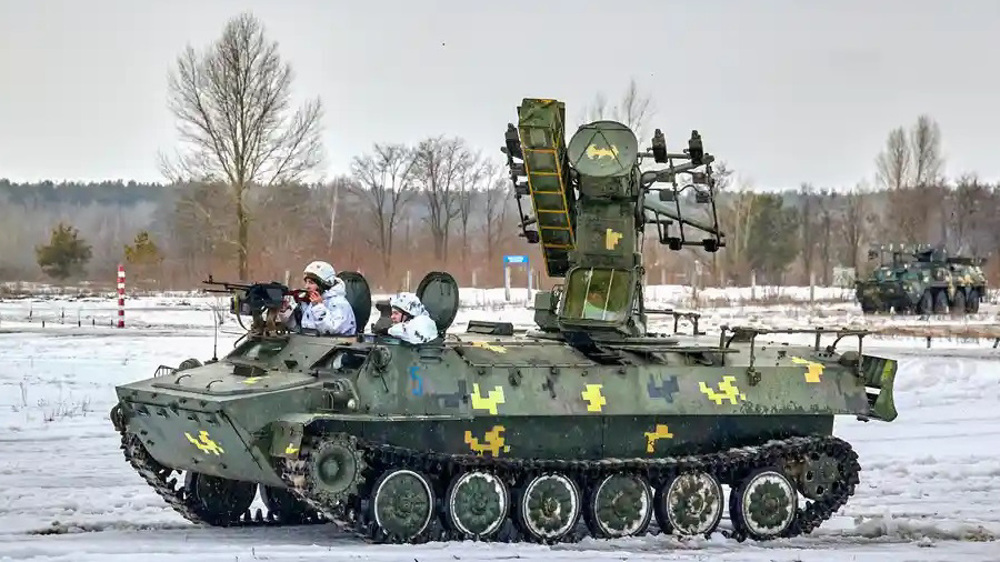




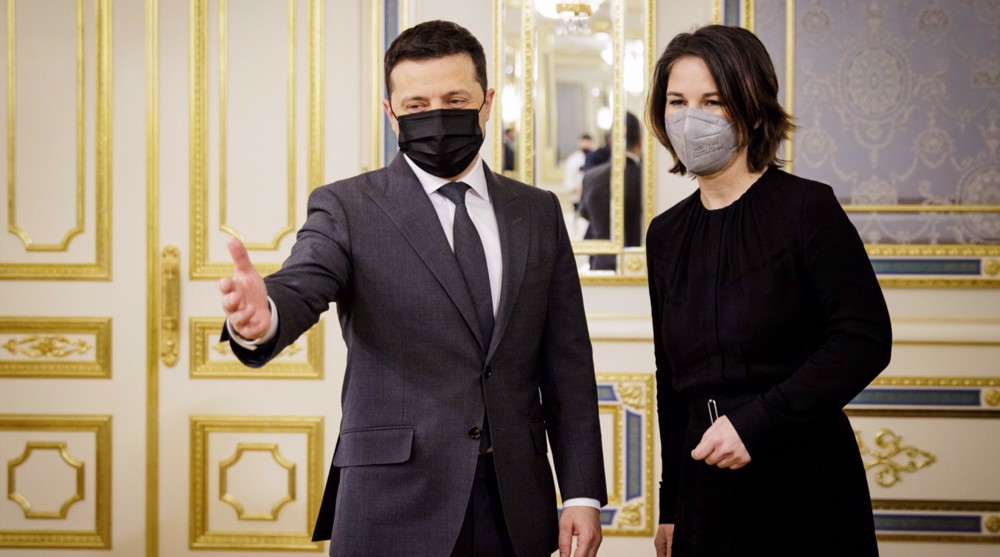




 This makes it easy to access the Press TV website
This makes it easy to access the Press TV website